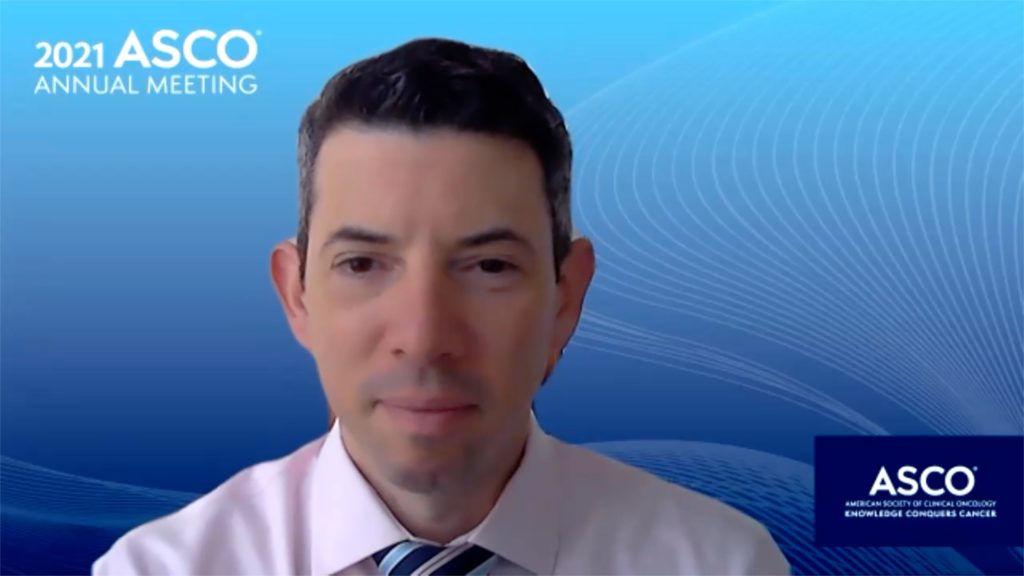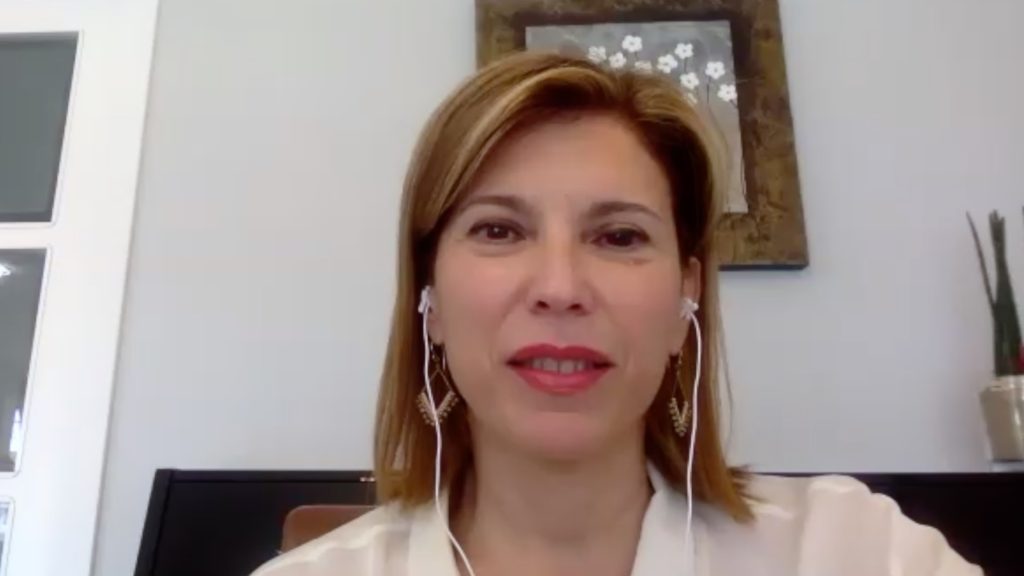Multiple therapies that have been approved for the treatment of BRAF V600 mutated melanoma. In this touchONCOLOGY interview, we speak with Dr Ryan Sullivan (Mass General Cancer Center, Boston, MA, USA) to discuss the current treatment paradigm and its limitations.
Ryan Sullivan presented an abstract entitled ‘Randomized phase 3 study (STARBOARD) evaluating encorafenib (enco) + binimetinib (bini) + pembrolizumab (pembro) for first-line treatment of unresectable locally advanced or metastatic BRAF V600-mutant melanoma’ (Abstract #CT069) at the American Association for Cancer Research Meeting 2023, 14–19 April 2023.
Click here to view the video on the STARBOARD phase III trial.
Question:
What are the current therapeutic options for patients with BRAF V600-mutant metastatic melanoma, and what are their limitations? (0:21)
Disclosures: Ryan Sullivan is a consultant for BMS, Merck, Novartis, Pfizer and Replimune and has received grant/research support from Merck.
Support: Interview and filming supported by Touch Medical Media. Interview conducted by Danielle Crosby.
Filmed as a highlight of AACR 2023
Access more content on dermatological cancers here
Transcript:
My name is Ryan Sullivan. I am a medical oncologist at the Mass General Cancer Centre in Boston and an associate professor at the Harvard Medical School, also in Boston.
Q. What are the current therapeutic options for patients with BRAF V600-mutant metastatic melanoma, and what are their limitations?
There are, over the past decade or so, more than a number of therapies that have been approved for the treatment of patients with BRAF V600 mutated melanoma.
These include BRAF targeted therapies, and ultimately there are now three settled upon combinations of the BRAF and MEK inhibitor, the first to be approved was dabrafenib and trametinib, the second vemurafenib and cobimetinib, and the third was encorafenib and binimetinib. Among those, we do not tend to think that any one is superior to the other, although they have slightly different toxicity profiles that may help us to decide what is the best therapy for a patient.
There have also been a number of immune therapies that have been approved not just for patients with BRAF mutant melanoma, but sort of independent of BRAF mutation status. These include single agent PD-1 inhibitors, nivolumab and pembrolizumab, a combination of CTLA-4 inhibitor with the PD-1 inhibitors so that is ipilimumab plus nivolumab, and the combination of a PD-1 inhibitor plus a LAG-3 inhibitor, which is nivolumab and relatlimab. All of those are reasonable options for a patient with newly diagnosed BRAF V600 mutant melanoma.
Although in recent times, there is now data to support the use of immunotherapy, specifically the combination of ipilimumab and nivolumab compared with BRAF targeted therapy and that was data that was generated in a clinical trial called the DREAMSeq study, which demonstrated superiority of 2 year overall survival being an absolute difference of 20% better with the combination immunotherapy versus combination BRAF targeted therapy. So while there are a number of options, we tend to favour immunotherapy for those patients.
Now, in terms of limitations, the limitation is most patients are still progressing, and will need another therapy. Therefore, we still have a way to go in terms of having a patient in front of us and thinking that there is an 80 or 90% chance that they will have disease control over a long period of time. Until we get close to that, we still have a lot of ways to go, particularly in that front line setting.
Subtitles and transcript are autogenerated









